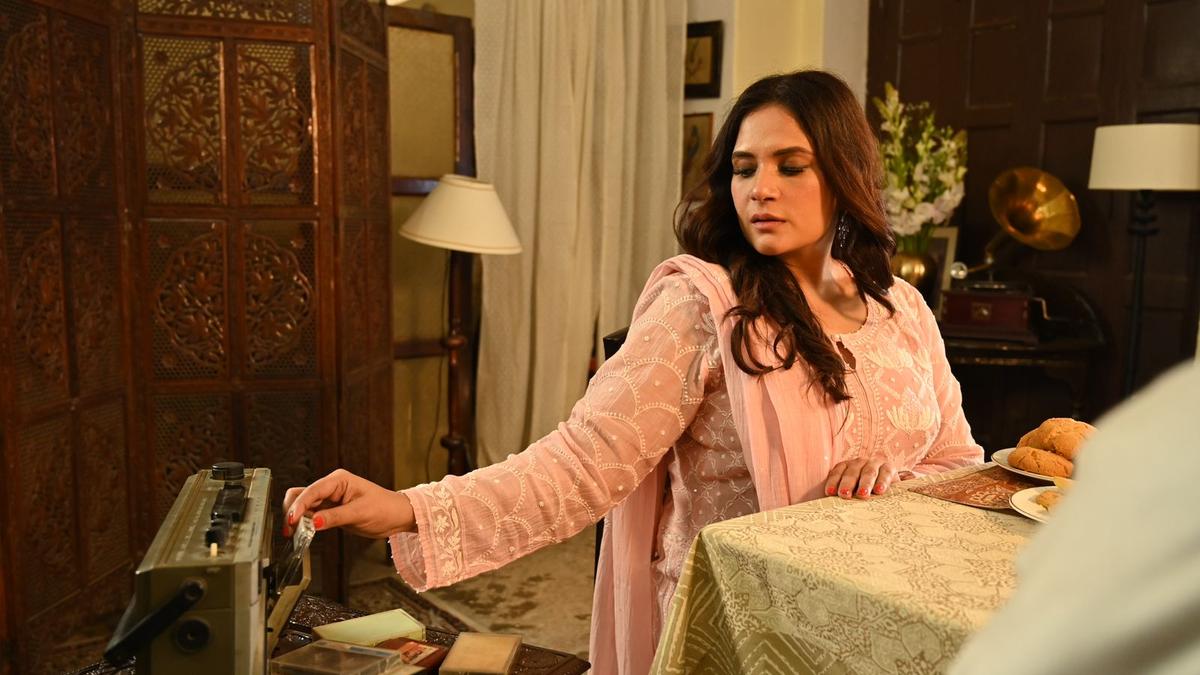
Richa Chadha-Ali Fazal launch sustainable fashion brand Ehaab to preserve Lucknow’s chikankari tradition
The Hindu
Richa Chadha and Ali Fazal’s sustainable fashion brand Ehaab Couture was launched on World Artisan Day (April 18). The brand — formed in collaboration with designer Yasmin Saeed — aims to work with local artisans from Lucknow celebrating the centuries old art of Chikankari and helping them preserve the legacy of this intricate art form
When actor Richa Chadha got married to Ali Fazal in October 2022, she chose to wear a custom Abu Jani-Sandeep Khosla kurti for their ceremony in Lucknow. The off-white chikankari kurti with a heavily embroidered yoke and borders was worn with a net dupatta accented with Swarovski crystals. “It was my hat tip to the city of Lucknow and to the culture of the family in which I am married into,” says the Fukrey actress.
That small gesture on her part has grown into a full-fledged tribute with the Bollywood couple’s sustainable fashion brand Ehaab Couture. The label — formed in collaboration with designer Yasmin Saeed — aims to work with local artisans from Lucknow celebrating the centuries old art of chikankari and helping them preserve the legacy of this intricate art form. The first drop comprises pure tissue, chanderi chikan kurtis for women and chikankari kurta sets for men in summery shades of peach, apple green, off-white as well as in darker shades of blue, purple and mauve.
The seeds of Ehaab — which means a gift, and is derived from the Arabic word ‘ehb’ — were sown during the pandemic. Ali, whose family has known Yasmin for many years, came forward to ensure that the artisans working in the latter’s production unit in Lucknow do not lose their livelihood. However, while charity is beautiful, it eventually runs out and they were only too aware of that. The duo then decided to come up with something sustainable and intrinsic to the culture of Lucknow and make it more accessible to the world. Thus, Ehaab was born.
With the brand, Ali and Richa aim to support the artisans who they believe are the true custodians of India’s handcrafted legacy. Says Richa, “For us, Ehaab is more than just a fashion label or a business endeavour. We have oriented it entirely in terms of the artisans ,” she says. Ali, on his part, believes that creating systems, even if they are on a small scale, and bringing in people who are talented to those systems, can add value to their lives. “Today, these karigars are following our vision. Eventually, we want to open our manufacturing line where they can have a stake in it,” he says.
Although there are many brands in the market including traditional Lucknow labels and NGOs promoting the tradition, as well as fashion designers retailing elaborate and luxurious creations, the couple says they are trying to focus on the gap in between. “These ready-to-stitch fabrics that are perfect for our hot climate, can be worn for special occasions. The fabric is delicate and so is the work,” shares Richa, whose latest cinematic outing is Sanjay Leela Bhansali’s Heeramandi.
A look at Ehaab’s website, which is where they are retailing the clothes from, also gives a glimpse into the history of chikankari. It reflects how the tradition came to India as part of the cultural exchange with Persia along with the Mughals, and how delicate needle embroidery came to be known as chikankari. “All that information is written by me,” Richa reveals.
Upwards of ₹12,000 on ehaab.in











